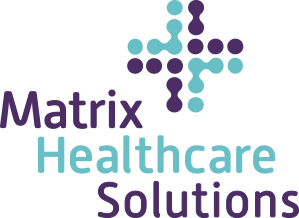Biosimilar Clinical Trials Today & Tomorrow
Biological products, also known as biologics, have formed a cornerstone of modern healthcare for decades. Blood transfusions, gene therapy, monoclonal antibody treatment, vaccinations, and many more key clinical processes rely on goods derived from living organisms rather than chemical synthesis. Unfortunately, the development and manufacture of biologics can be extremely expensive.
A common topic of debate by key opinion leaders in recent years has been the emergence of biosimilars and how to accelerate clinical trials in biosimilar development programs.
What are Biosimilars?
Biosimilars aim to reduce the costs associated with biologically-derived treatments without inhibiting the clinical significance of the innovator product. The goal is to identify novel goods with strong biosimilarity to existing biologics without significant differences in terms of their potency, purity, or safety. Significant strides have already been made in this area, and the biosimilar industry continues to grow year on year.
Successful clinical studies have already yielded a range of promising biosimilars derived from familiar innovator medicines including Avastin, Humira, Rituximab, and Herceptin. However, the learning curve in terms of existing biosimilar development has proven a steep one, with industry expert Anna Rose Welch suggesting that companies approach biosimilar clinical studies with the wrong mindset.
“[O]ver the past few years, some companies have operated under the mindset that they must approach the regulatory agency with proposals for studies that examine comparative efficacy in more than one indication rather than relying on extrapolation.”
Biosimilars in the Near Future
This conservative mindset is gradually beginning to shift as increasing numbers of clinical trials look to improve efficiency through tandem studies, by which we mean running phase one and comparative efficacy analysis simultaneously. This is unlikely to work for biologics with fewer indications, thus smaller patient populations, however, as the current market relies on hundreds of patient participants per study.
Biosimilars for pegfilgrastim achieved approvals without conducting a comparative efficacy study at all, which indicates the need for a different developmental pipeline for drugs with a smaller market footprint. The expectation is that streamlining clinical trials and efficacy studies will be regarded on a product-by-product basis for several years yet, as the market continues to adapt and change. Oncologists, for instance, are currently exploring the viability of testing immune system targeting monoclonal antibodies on a healthy population in phase one clinical trials, an unprecedented step in pharmacology that requires regulatory input and guidance.
Andrew Mulcahy, lead author of an industry report into the future of next-generation biologics, claimed that:
“The emergence of biosimilar drugs has the potential to create significant savings for the nation’s health care system.”
The study suggested that the US health system could save as much as $44.2 billion over a ten year period, depending on the level of market penetration. This largely depends on actions taken by the US Food and Drug Administration (FDA) relating to the role of clinical studies, efficacy studies, and the establishment of a regulatory paradigm for biosimilar products.
Clinical Trial Services with Matrix Healthcare Solutions
Clinical trial services is one of our key divisions at Matrix Healthcare Solutions (MHS). We can assist you in strategy development and at every subsequent phase of your study, from planning to portfolio management. Contact a member of the MHS team today if you have any questions about running a next-generation biosimilar clinical study.

